ARTICLE AD BOX
Brandon Drennonin Westmoreland, Jamaica

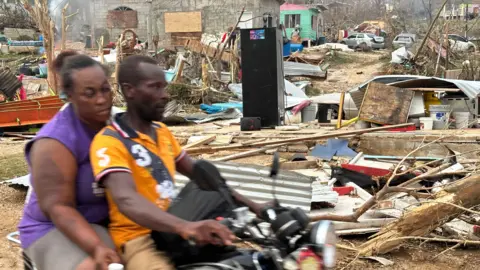 Brandon Drenon / BBC News
Brandon Drenon / BBC News
A town just outside of Whitehouse in Westmoreland Parish sits in ruins
Five days after Hurricane Melissa pummelled into western Jamaica with record force, residents in devastated communities along the coast are still desperately waiting for help.
Many of the roads are blocked by debris and people are isolated with little food, no power or running water, and no idea of when normalcy will return.
The government said on Saturday that at least 28 people in Jamaica have died since the hurricane hit as a monster category five storm with 185 mph (297km/h) sustained winds.
That is a near 50% jump in the death toll overnight, and the number could rise as officials clear their way into new parts of the island in the coming days.
Local official Dr Dayton Campbell told the BBC 10 of those deaths were in Westmoreland.
Westmoreland parish is believed to have the second highest number of unconfirmed deaths, after St Elizabeth to the south east. The eye of the storm hit somewhere between the two neighbouring parishes. At St Elisabeth an estimated 90% of homes have been destroyed.
A long stretch of road headed west into Westmoreland Parish winds through a graveyard of trees – stacks of branches and limbs, cracked and twisted, blanketing the landscape for miles. It is grim evidence of Hurricane Melissa's ferocity - it was the strongest storm to strike the Caribbean island in modern history.
Piles of debris are heaped on the parish's roadsides, next to battered buildings, shipping crates turned on their side and crowds of people wading through the destruction.
On Saturday morning, men with machetes hacked through branches as thick as their arms, clearing patches of the road where traffic jams were at a standstill.
A policeman with an automatic weapon strapped to his chest, part of a convoy accompanying an aid truck on its way to Westmoreland, hopped out of his vehicle to help direct traffic.
"We don't know what lies ahead," the officer told the BBC, describing what he has seen as "total devastation".

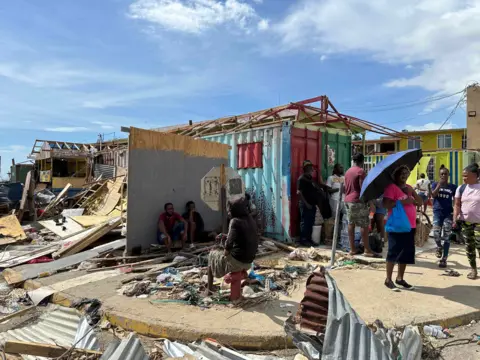 Brandon Drenon / BBC
Brandon Drenon / BBC

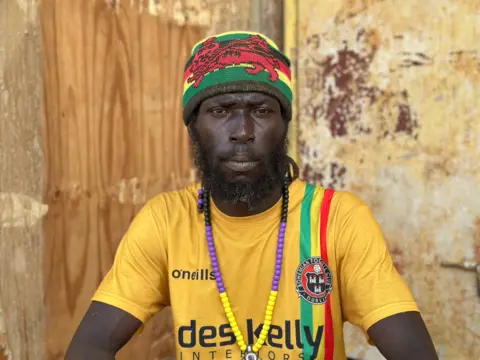 Brandon Drenon / BBC
Brandon Drenon / BBC
Roy Perry says he has lost everything in the wake of the strongest hurricane in Jamaican history

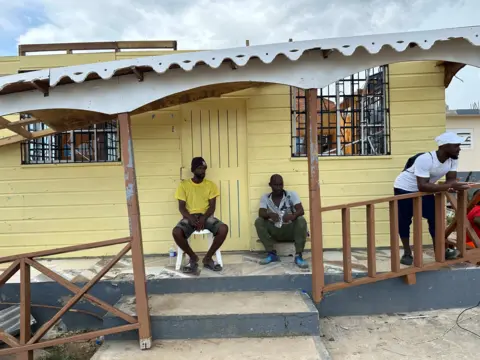 Brandon Drenon / BBC
Brandon Drenon / BBC
Anthony Burnett (left) and Gary Williams (right)
Those living in Whitehouse, a coastal town and commercial hub on the edge of Westmoreland Parish, say the wait for assistance is becoming frustrating.
Gary Williams said he has heard promises of incoming aid delivery, but "they no turn up".
He sat in the shade on a makeshift stool in front of a building barely standing – its entire roof gone – unsure of what to do next.
Williams said he lost his house in the storm and has "nowhere to live", suggesting he might sleep right where he is, outside on the front porch.
Another woman, who asked to remain anonymous, said: "Words can't explain the situation that we're in. It's horrible. I don't even know what to say. So many hopeless, helpless, and lifeless people here right now."
About 400,000 people in Jamaica were without power as of Friday, and an untold number more have no access to cell phone service or Wi-Fi, cut off from the outside world.
Jamaica's transportation minister Daryl Vaz announced on Saturday that more than 200 StarLink devices have been deployed across the island to help people access the internet.
He addressed criticism the government has received for its response, saying there were "several factors" contributing to delays.
"Refuelling, Areas for Landing, Accessibility and Timing/Visibility," Vaz said on X.
Jamaica's Prime Minister Andrew Holness urged that the "immediate focus is on clearing debris, restoring essential services", as well as providing food and medical supplies.
But that would only solve part of the problem.

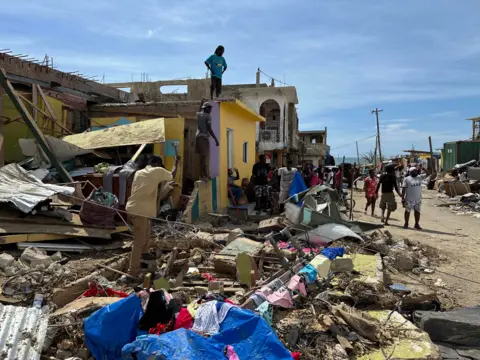 Brandon Drenon / BBC
Brandon Drenon / BBC
Residents of Whitehouse in Westmoreland Parish try to piece their lives back together
In a tiny community just outside of Whitehouse, Robert Morris rested against a slab of broken concrete. Behind him, the fishing village he has called home his entire life has been destroyed, along with his livelihood.
"We all devastated here man," he said. He said the boat house was destroyed and is now "flat".
"Melissa take everything down," he said, including his fishing boat, which he describes as "mashed up".
Morris also told of "no help, no food, no water".
"We just have to try and see what we can do," he said, adding that his plan was to find someone whose boat was still intact so that he could join and fish.
Even then, he is not sure where he would sell his catch.
The people in these areas are filled with pride and resilience, words that are often repeated on local radio stations and visible through their optimism in the most difficult circumstances.
Seated under the facade of a badly damaged building, Roy Perry said he has lost everything, but "we have to just keep the faith and the hope is up still".

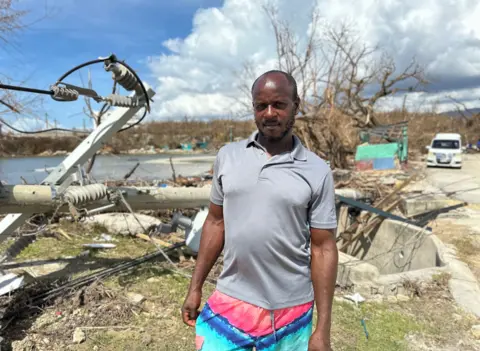 Brandon Drenon / BBC
Brandon Drenon / BBC
Robert Morris fishing village in view over his right shoulder has been entirely destroyed
"Can't give up. Not gonna give up," he said.
It is the same tone struck by Oreth Jones, a farmer sitting in the bed of his truck selling pears, pumpkins, and sweet potatoes – the last of his produce that was spared from the storm.
Of his farm, he said: "It's all wrecked. They all destroyed." But he quickly followed up with: "We have to give God thanks we're alive."
Jones survived the strongest hurricane in Jamaican history while he was injured, wearing a homemade splint on his right leg from a fracture he suffered during a biking accident before Melissa hit.
When asked about how the community will move forward, he said: "Pray. Nothing else we can do. Nothing else."
Meanwhile, foreign aid has now started entering into Jamaica.
The US State Department announced on Friday that its Disaster Assistance Response Team had arrived. And countries including the UK have also pledged millions in aid relief funds and emergency supplies.

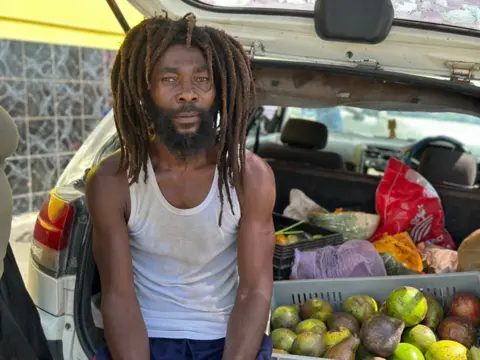 Brandon Drenon / BBC
Brandon Drenon / BBC
Oreth Jones, a local farmer, said his farm was "all wrecked"

 7 hours ago
2
7 hours ago
2
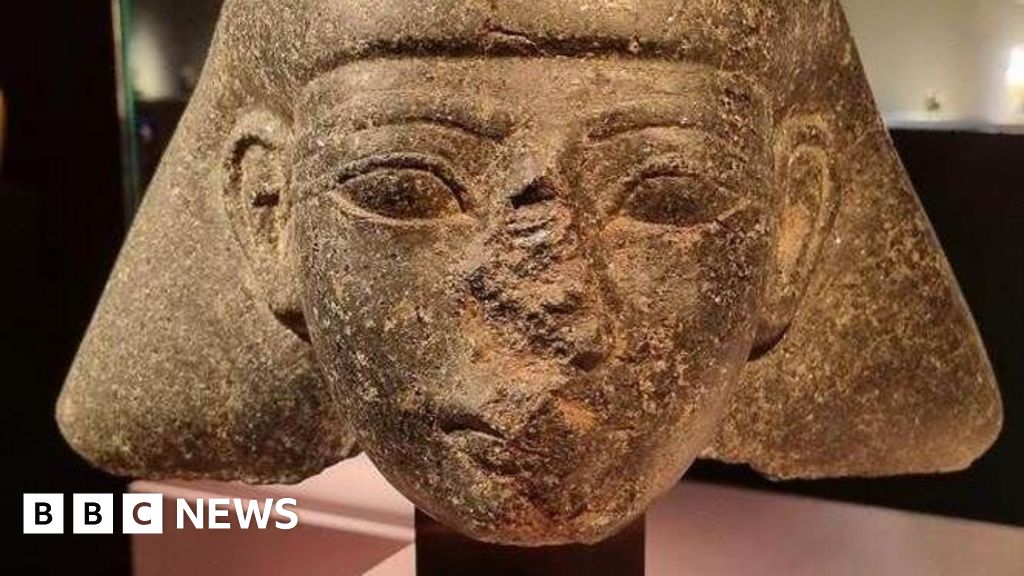

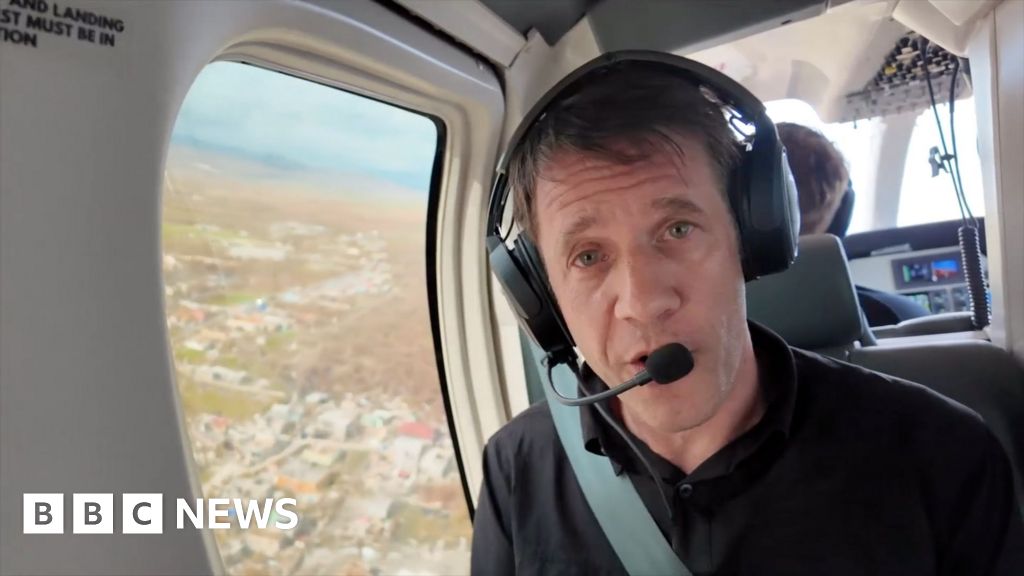





 English (US) ·
English (US) ·